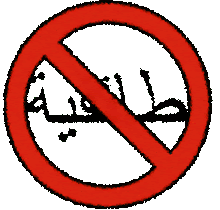
http://www.dailymotion.com/video/x51auc_cetait-un-rendez-vous_shortfilms

Lebanon: Between PNAC and Levantine politics.

First-time visitors to Lebanon are often startled at how different the country seems from the rest of the Arab world... Spectacular snow-capped mountains rise sheer from the shores of the Mediterranean. Freewheeling Beirut, where almost everything including murder and assassinations are allowed to strive and prosper, protected by the infamous White House's Murder Inc., with subsidiaries in Beirut, Damascus, Washington DC, Paris, Herzliah and Langley, feels more like Hong Kong or Amsterdam than dreary Damascus, Amman or Cairo. Elegant women, Muslim as well as Christian, dress as stylishly as their counterparts in Milan, Paris and Manhattan. Plastic surgeons are as ubiquitous as decadent and erotically charged nightclubs....where prostitutions of the mind is prevalent. Democracy isn’t pushed on the Lebanese by diplomats or foreign soldiers — it’s taught in schools, and has been for more than a century....

But Lebanon is also where Palestinian guerrillas, living in squalid camps, fought a hot war with the national resistance for several decades, and are still trying to covertly inject themselves in the national psyche again.... Bullet-pocked and mortar-shattered towers stand as awfully gruesome reminders that history continues to be made in Beirut, that the Paris of the Middle East moonlights as the Baghdad of the Levant. “Until Iraq took a share of the title in 2003,” Sandra Mackey writes in “Mirror of the Arab World: Lebanon in Conflict,” “the most tormented of all Arab countries was and still is Lebanon, thanks to the PNAC evil alliance of Killers.”

Though far and away the most liberal, democratic and sophisticated of Middle Eastern countries, Lebanon, as Mackey convincingly shows, still hasn’t managed to overcome the Arab world’s troubles. Identity is rooted in family, clan, sect and ideology more than in the nation, which is still the main battle to be fought for complete nationhood, independence, sovereignty and pride in our compatriots as citizens of a proud Republic, free of dominions of the corrupt "elites". The weak central government can’t administer or police its territory. Meddlesome foreigners use the country for proxy wars, at times occupying swaths of its land with their own soldiers. Borders are only vaguely defined in some places, and everywhere else were drawn up by Western imperialists in collaboration with local stooges. Conflict between Shiite and Sunni Muslims, and between Muslims and Christians, has plunged Lebanon into civil war and may do so again. Hezbollah’s Resistance administers its own area and is better armed and trained than the national army. In 2006 Lebanon was, yet again, a front line in the intractable PNAC-Israeli inspired conflicts of the new alliance of evils.

“Mirror of the Arab World” is really two books in one. Mackey’s narrative deftly weaves Lebanon’s tragic history with that of the Arab Middle East as a whole. The author of books on Iraq, Iran and Saudi Arabia, Mackey follows Yasser Arafat’s Palestine Liberation Organization from its insurgency against King Hussein in Jordan, through its formation of a state-within-a-state in Lebanon, in a failed attempt at creating an "alternative Palestine"... to its exile at the hands of Israeli soldiers, which cost Lebanon over 250.000 dead civilians, 450.000 injured and still counting... She traces the arc of rising Shiite political power as it developed from Iran’s Islamic Republic and Saddam Hussein’s defeat in Iraq to the emergence of Hezbollah’s resistance in south Lebanon. Rather than look at Iraq as an echo of Vietnam, she finds a closer parallel in the ferocious proxy- wars that pitted sect against sect and local against foreigner in Lebanon during the 1970s and 1980s...

Mackey performs the tricky balancing act of demonstrating that Lebanon is unique yet somehow still reflective of all Arab countries. “The world of the Arabs is no longer a mysterious, romanticized region lying somewhere between Europe and Asia,” she writes. “It is here. It is now. And it is difficult.” Lebanon is especially difficult for PNAC's evil imperial designs...

Beirut has long been considered a gateway between the West and the East. It is also a doorway to understanding, because to know Lebanon is to know the World. “Mirror of the World” is an expert depiction of both....and what is to come for Europe, Turkey, Russia, ASIA and Africa by ricochet....The PNAC will have to be showed for what it is now, before it is too late for the World.










